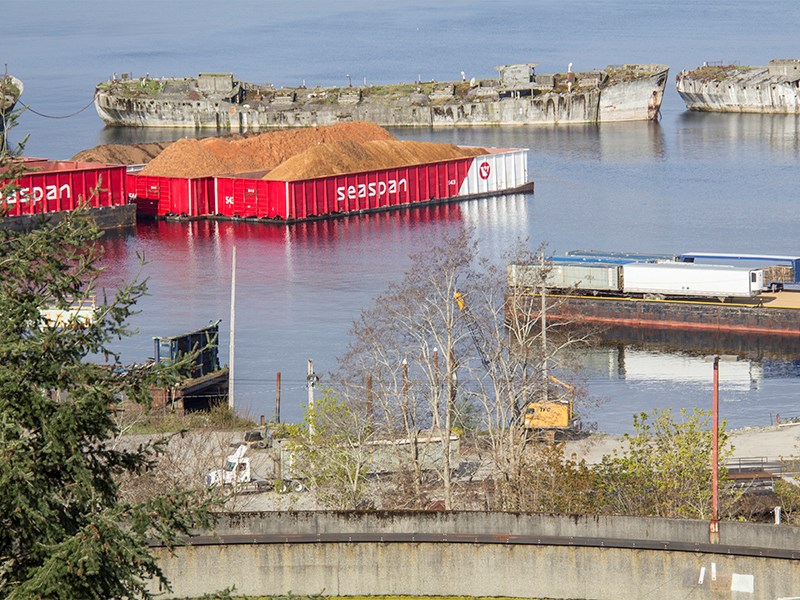Uncertainty is the buzzword within the BC forestry industry following countervailing duties imposed by United States Department of Commerce on Canadian softwood lumber.
Lumber and pulp and paper account for 35 percent of all exports from BC and 140 communities depend on it, including Powell River.
At its Powell River mill, Catalyst Paper Corporation uses sawmill residuals such as bark and chips to make its pulp and paper products. Any decline in sawmill production will have a direct impact on the mill’s fibre availability, according to Catalyst spokesperson Eduarda Hodgins.
“We are monitoring the situation,” said Hodgins. “It’s too early right now to assess the impact and, in fact, the lumber producers have been saying they need to understand what the impact is on their production.”
According to Hodgins, Catalyst uses a methodology provided by the provincial government to arrive at how important the company is to the Powell River economy.
“Analysis that Catalyst has done indicates the mill in Powell River generates an economic impact of approximately $520 million annually and an employment impact, including direct, indirect and induced jobs, of 1,600,” said Hodgins.
It will be several weeks before Catalyst can really understand the impact of the tariffs on its operations in Powell River, according to Hodgins.
As for City of Powell River, finance committee chair Russell Brewer said everyone is concerned.
“Last time around there were quite a few cuts that happened in BC, about 15,000 people,” said Brewer, who is employed as a practices forester with BC Timber Sales. “Everyone is nervous, but it’s outside of our jurisdiction.”
What is different, as opposed to previous occasions, said Brewer, is the United States seems to be unfairly targeting smaller and medium-sized companies, and that is concerning.
“It is by design,” said Brewer. “They’re trying to create some division among the different producers in Canada, which would suit their purposes in the dispute.”
When small or medium-sized companies are unfairly targeted, Brewer said he is more concerned as a small community, locally elected official.
According to Brewer, prices are high right now compared to during the last softwood dispute in 2000.
“It’s hard to pin down what the impact is going to be because it’s so complicated,” said Brewer. “We’ll come out fine in the end, but it’s just that period of uncertainty where you get slapped with these duties.”
The average 20-percent countervailing duty on Canadian lumber exports is projected to raise the cost of United States housing and result in a loss of more construction jobs in that country than it gains in logging.
Without the United States market, which is the largest importer of Canadian softwood, and with a slow-to-develop expansion into new Asian markets, particularly China, demand will affect supply and price regulation, but not immediately, said Brewer, because prices for softwood are currently high.
While it may be to early to access economic impact on businesses and municipal governments, uncertainty has already taken hold of people employed in the forestry sector, according to North Island-Powell River MP Rachel Blaney.
“When we have [Donald] Trump making these announcements, it will have a significant impact and people need to know what our plan is if things move forward, and right now we’re just not getting those answers,” said Blaney.
The uncertainty is hardest felt by families who feel the dispute hanging over their heads, said Blaney.
“We need a second plan,” she said. “We need to know what we’re going to do. We need to know how we’re going to support 200,000 jobs across Canada.”



